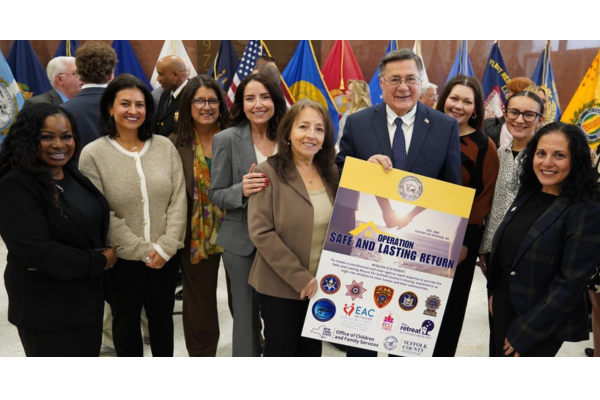By Susan Bereche, Retreat Attorney
In response to Governor Cuomo’s directive that 100% of non-essential employees work from home, as well as his temporary suspension of statutes of limitations and other time restrictions relating to litigation, most legal actions are suspended or adjourned for at least 90 days. This means that only those cases deemed to be “essential” will proceed, many of them remotely. Therefore, many parties to Family Court proceedings will have their cases rescheduled to a later date.
Any Order of Protection issued out of Family Court is still effective and will continue to be effective for at least 90 days. Most court dates relating to cases where an Order of Protection has already been issued are being rescheduled by the court system to dates in May or later. The court clerks will send notification to these parties directly unless the party was represented by an attorney on the last court date in which case the party’s attorney will receive notice on the party’s behalf.
It is important to note that requests for Orders of Protection may still be made to Family Court. Parties seeking an Order of Protection are encouraged to make the application remotely by utilizing video chat applications and programs or conference calls. We, at The Retreat, can assist with such requests.
With regard to other Family Court proceedings, only the following cases remain on the court’s calendar: a) neglect and removal proceedings brought by Child Protective Services through the Department of Social Services of Suffolk County; b) proceedings against juvenile delinquents where remand or custody of the juvenile offender is requested; and c) any emergency custody applications seeking a temporary restraining order or a writ directing that the child be brought before the court for a determination of an exigent issue as to custody or visitation.
Other issues of which to be aware:
a) provisions of the Vehicle and Traffic Law relating to the renewal of a driver’slicense, non-driver identification or vehicle registration have been suspended with regard to those renewals that were required by March 1, 2020;
b) documents may be notarized via video communications; and
c) housing matters relating to certain actions by the landlord against the tenant are still being addressed by the courts; these include cases where the landlord has: locked out a tenant, has committed serious housing code violations, has ignored serious repair orders or has been awarded a judgment of possession and warrant of eviction against a tenant.
